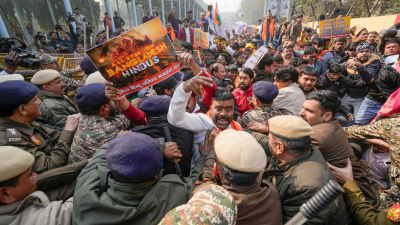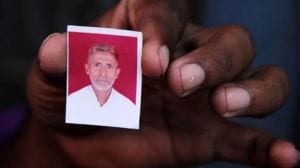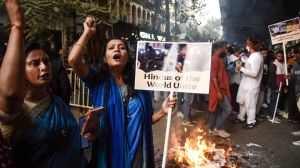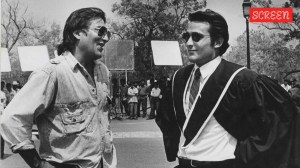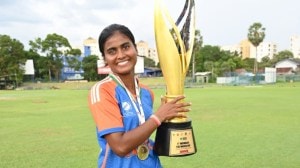The Justice Arumughaswamy Commission report, probing the hospitalisation and death of former Chief Minister J. Jayalalithaa in September 2016, which was tabled at the Tamil Nadu Assembly on Tuesday, may have ruled out key conspiracy theories, but it damns V.K. Sasikala, Jayalalithaa’s close aide who lived with her for almost 30 years, with strong words and a call for further investigations.
Citing a raft of reasons, including unverified media reports, allegations of procedural lapses in the treatment and decisions taken by her doctors, the report castigates Sasikala, her relative Dr. S. Sivakumar who was also Jayalalithaa’s private doctor, the then health secretary J Radhakrishnan and the then health minister Dr. C. Vijayabaskar.

Predictably Sasikala has denied all charges levelled against her, claiming Jayalalithaa was given the best treatment. “People in Tamil Nadu have realised that Jayalalithaa’s death was not mysterious, but the issue has been politicised. I am ready to answer any questions about my friend’s death,” she said.
“Those who didn’t have the guts to go up against Amma (Jayalalithaa) politically, have used her death as a cheap way to do so. But people won’t agree with that,” she said.
She said the commission’s findings were based on assumptions and that she “never interfered with Amma’s treatment”.
“The medical team chose which tests, medicines, and treatments to use. I only wanted the best care for Amma,” Sasikala said, asking how the commission concluded that her relationship with Jayalalithaa wasn’t good. She attributed political motives on the commission for stating things that “aren’t true”.
The report targets almost everyone in Jayalalithaa’s close circle. It even raises questions about Apollo Hospital Chennai and the doctors who treated the former CM there. Perhaps the only person spared is Edappadi K. Palaniswami, who had appointed the commission as the incumbent CM.
Story continues below this ad
The 475-page report concludes that Jayalalithaa’s death was between 3-3.50 pm on December 4 and that not at 11.30 pm the next day. It also raises many questions and suspicions regarding the “secrecy” maintained by Sasikala during the hospitalisation and treatment, which ensured that only she had access to the hospital’s treatment room, with she signing all consent forms for Jayalalithaa and all doctors reporting to her. The report also seeks a probe into an angioplasty or surgery that was suggested and why it was postponed or never conducted.
 V Sasikala near the mortal remains of former Tamil Nadu CM Jayalalithaa. (File Photo)
V Sasikala near the mortal remains of former Tamil Nadu CM Jayalalithaa. (File Photo)
Why Sasikala
Although Sasikala has been largely staying away from active politics after her release from jail, people in Sasikala’s close circle said the remarks by the commission in its report will affect her future prospects.
“There was a lot of sentiment surrounding Jayalalithaa’s death. She [Sasikala] was held responsible for that by O. Panneerselvam and BJP, who spread a lot of rumours involving her role in it. Even if the commission said there was no mystery in the process of hospitalisation, an impression that Sasikala denied Jayalalithaa proper care, surgery and treatment abroad, has been strengthened again now. That charge of negligence goes well with wild theories spread about her [Sasikala] over the years,” said a source.
Story continues below this ad
However, observers know Jayalalithaa’s life would not have been the same without Sasikala. From folding bedsheets to taking care of her health and running and controlling party organs like Jaya TV, Sasikala did everything except for displaying her political skills in public.
She lived with Jayalalithaa for about three decades since 1987, and knew her since 1984. Even after her husband M. Natarajan, a former government PRO with an interest in Dravidian politics, was kicked out of the former CM’s residence, ‘Vedanilayalm’, in Poes Garden in 1990, Sasikala did not move out with him. Instead, she stayed with Jayalalithaa until she died, barring a period of about four months in 2011, when she had fallen out of favour with Jayalalithaa — something the commission highlighted to conclude that everything was not alright in their relationship.
Sasikala accompanied Jayalalithaa when she visited temples, ran for each term in the government, went to private events and spent her vacations at Kodanadu Estate. She was the party’s representative and broker in alliance talks with smaller parties in Tamil Nadu who also fixed appointments with bigwigs in Delhi. She often also decided ticket distribution for Assembly polls, ministerial berths, and the fate of top bureaucrats. Top ministers and officials had later recalled that it was easier to work with Sasikala than Jayalalithaa, who was often short-tempered, erratic and made many official meetings uncomfortable.
“Tough patient, adamant as a kid”
Story continues below this ad
Multiple submissions to the Arumughaswamy commission painted Jayalalithaa as a stubborn child, who wouldn’t listen to medical experts’ opinions or advice. This is probably what made Dr. S. Sivakumar, Sasikala’s relative, a convenient private doctor at home instead of experts who were willing to attend her in top Chennai hospitals in her final years.
One of the doctors who was familiar with Jayalalithaa said she looked different at her swearing-in ceremonies of 2011 and 2016. “I would say it was a very important period, when her health started to get worse. During the preparations for her May 2016 swearing-in ceremony, officers were told to finish it in just 25 minutes, because she couldn’t be on stage for long. This meant that ministers had to take their oaths in groups, quite possibly a first in Indian politics, so that they could finish quickly,” he said. Even as things went from bad to worse in 2016, she kept being stubborn. “She was one of the toughest patients I had ever treated. Sasikala might have played a key role in running the system. Officers used to bring files to her home, as her movements and routines became more secretive, quite possibly because she was very particular that she should not send out a message that she was sinking,” he added.
Several people who knew details of her hospitalisation period said the commission report was half-baked and full of amateur observations, lacking any understanding of the medical procedures and decision-making. “It’s likely that Sasikala had nothing to do with how Jayalalithaa was treated. Maybe she was against taking Jayalalithaa abroad for care as Jayalalithaa too was against the idea of foreign treatment. Many remarks from the commission against the hospital and doctors were also unfortunate. That too, after two reports by the AIIMS medical panel had already said that the late CM was treated correctly and that there were no mistakes in the care she received,” a source said.

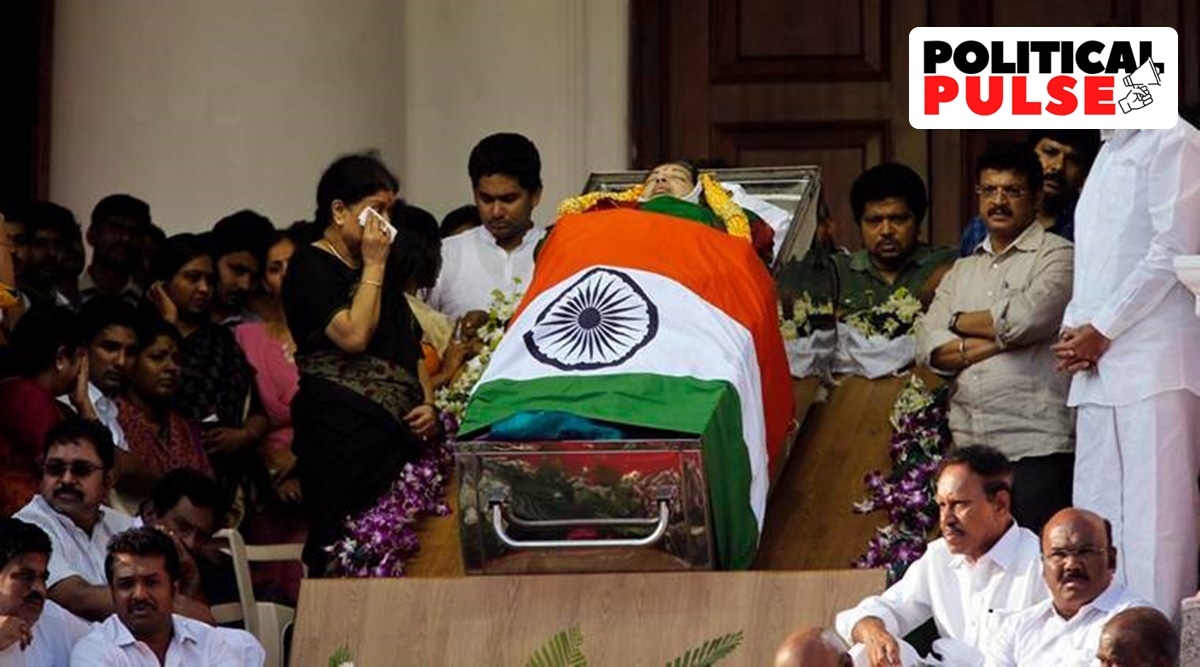

 V Sasikala near the mortal remains of former Tamil Nadu CM Jayalalithaa. (File Photo)
V Sasikala near the mortal remains of former Tamil Nadu CM Jayalalithaa. (File Photo)
